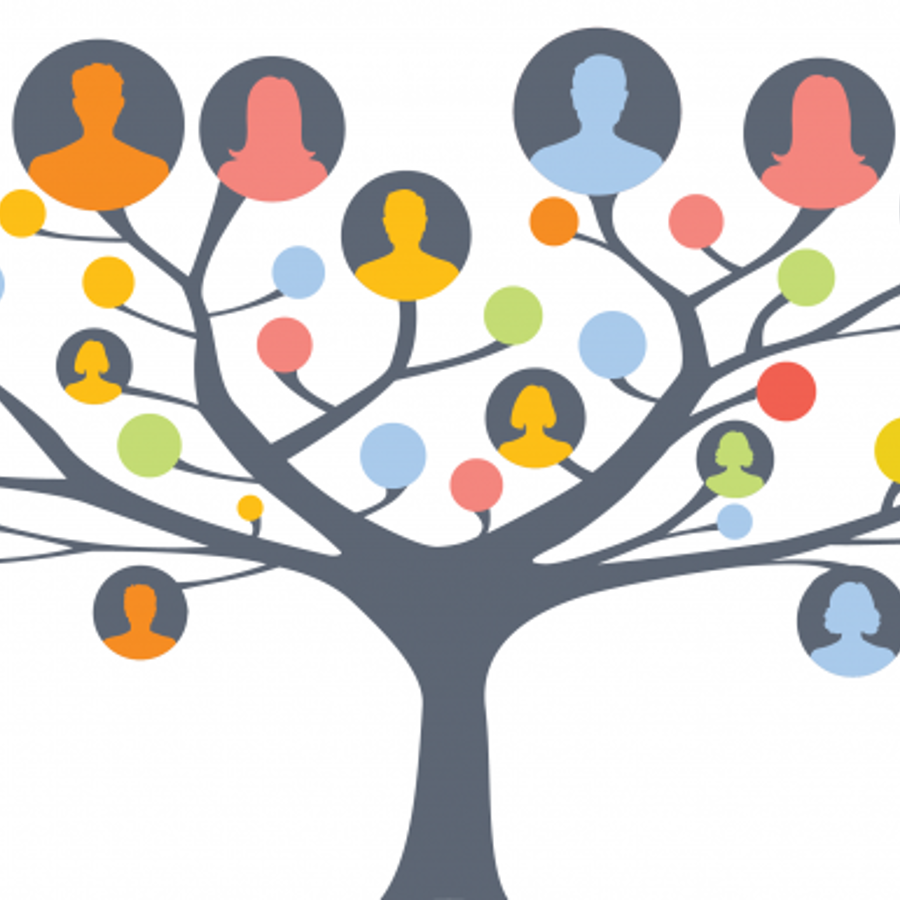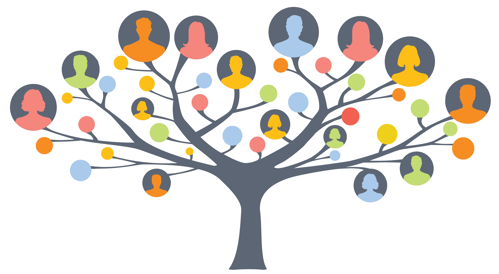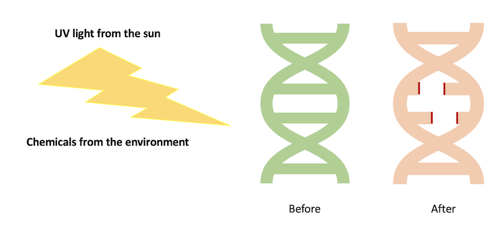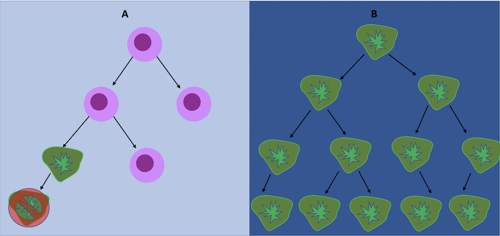
Could my breast cancer be genetic if I don’t have the BRCA mutation?
September 24, 2013

- Related Topics:
- Cancer,
- Complex traits,
- Mutation,
- Epigenetics,
- Environmental influence,
- Gene expression
A curious adult from New York asks:
"I had breast cancer last year and tested negative for the BRCA mutation. What are the chances my cancer was genetic?"
Your cancer is almost certainly genetic. But strangely enough, that doesn’t necessarily mean you got it from your parents.
See, cancer almost always happens when certain genes aren’t working right. These genes are responsible for making sure our cells grow at just the right speed and die at the right time.
When enough of these genes are broken, cells will start to grow uncontrollably. These cells are now cancerous.
It is important to note that no one is born with all of these genes already damaged. In other words, almost no one inherits a 100% chance of getting cancer from their parents. These people would almost certainly die before they are born.
What happens instead is that these genes get damaged as we live our life. If enough genes get damaged, then cancer develops.
This damage, also known as “genetic mutations,” can happen in lots of ways. Sometimes things in the environment like ultraviolet radiation from the sun, chemicals in cigarette smoke or viruses can cause it. And sometimes our cells do it to themselves when they make a mistake copying their DNA.
If this sounds like no one inherits cancer from their relatives, then you heard right. But that doesn’t mean you can’t inherit an increased chance of getting cancer.

When cancer runs in families, people inherit a few of these mutations pre-made from their parents. They start off with some damaged genes which means that they need fewer mutations to end up with cancer.
BRCA1 is an example of just one gene that we can inherit in a form that increases our risk for cancer. People who inherit certain forms are more likely to get cancer because it takes fewer mutations to turn a cell into a cancer cell.1
Of course this is not a sure thing! Many women with BRCA1 mutations do not develop cancer and many women that do not have the mutation do.1 It all depends on whether you are unlucky enough to build up the “right” set of mutations or not. BRCA1 mutations just make it easier to get to that final, awful set.1
And as you may have guessed by now, the BRCA genes are not the only ones involved in cancer or even in increasing your risk for getting cancer. They are just a few among many.
So even if you test negative for BRCA mutations, you could still have inherited mutations in different genes that led to an increased cancer risk. Heck, depending on the genetic test you got, you may even have inherited a previously undiscovered cancer-causing BRCA mutation that the test missed.
It is important to remember that cancers are inherited in only 5-10% of cases.2 Most cancers are caused by new mutations in a patient’s lifetime. So if you don’t have a family history of cancer, your cancer probably isn’t inherited.

Cancer Is a Collection of Mutations
We have thousands of genes in our bodies. They have the instructions for making every part of our bodies and getting them to work. In general we are pretty good at protecting our genes and making sure they don’t get damaged. But nothing in life is 100%!
There are two key classes of genes involved in cancer. The first are known as proto-oncogenes. Their job normally is to tell the cell when to grow and divide.
We also have genes called tumor suppressors. They have the opposite job from the proto-oncogenes. You can think of them as the quality control department in the cell. They check a cell’s genes and make sure that a cell with broken genes does not keep growing.
There are many different proto-oncogenes and tumor suppressors. When one of them gets mutated and breaks, another one can take over. Therefore nothing terrible happens if one of your tumor suppressor genes or proto-oncogenes is mutated. The trouble starts when many of them are broken at the same time.
If a few proto-oncogenes are broken, they may tell cells to grow at a really fast speed. If at the same time, tumor suppressors are also broken, they will not be able to stop these cells from growing. That’s when cells grow out of control and form tumors. That’s when cancer develops.
In addition, you can get cancer even if only a small number of cells contain mutations. Tumors usually start from one or few cells. The reason they get so big and nasty is because they grow and divide at an incredibly fast rate. So only a few cells need to build up lots of mutations in order for someone to get cancer.
All of this explains why older people are more likely to get cancer. The longer you live, the more damaged your DNA becomes. And the better chance that the mutations will have hit all of the “right” places.
BRCA1 is a tumor suppressor. It helps repair damage in the DNA.1 If BRCA1 is mutated, it’ll be easier to get other mutations because BRCA1 cannot fix the broken DNA.
Again, this doesn’t mean that you will definitely get cancer, but it does give you a higher risk. People with a broken BRCA1 gene end up with more mutations, so their DNA “ages” faster than other people’s.
This is why getting a mutated BRCA1 from your parents can make you more likely to get cancer. If you already have a copy of mutated BRCA1 from your parents, you need fewer mutations before reaching the point where the cell grows out of control.

Cancers Caused by Infection
It turns out that not all cancers are caused by genetic mutations. There are some infections that can cause cancer without changing the human’s genes. The human papilloma virus (HPV) is one such virus.3
Instead of changing genes, HPV physically destroys an important tumor suppressor and inactivates another. So even though there is nothing wrong with the instructions to make the tumor suppressors, the tumor suppressors cannot do their job.3
The result is the same as if these tumor suppressors were mutated. These tumor suppressors cannot protect the cell from overgrowing any more. This is why HPV infection can sometimes cause cervical cancer in women.3
There are other weird ways to get cancer too. For example Tasmanian Devils can give each other cancer by biting each other in the face. And some dogs can directly pass cancer to other dogs.
Luckily there aren’t any cancers like that in people (at least none we know of). Most cancers in people are caused by a buildup of DNA damage in certain genes. So decrease your risk by using sunscreen, quitting smoking, and doing anything else you can think of to protect your DNA! These tips from the Mayo Clinic could be a good place to start.

Author: Shifeng Xue
When this answer was published in 2013, Shifeng was a Ph.D. candidate in the Department of Genetics, studying translational regulation in vertebrate development in Maria Barna’s laboratory. She wrote this answer while participating in the Stanford at The Tech program.
 Skip Navigation
Skip Navigation
